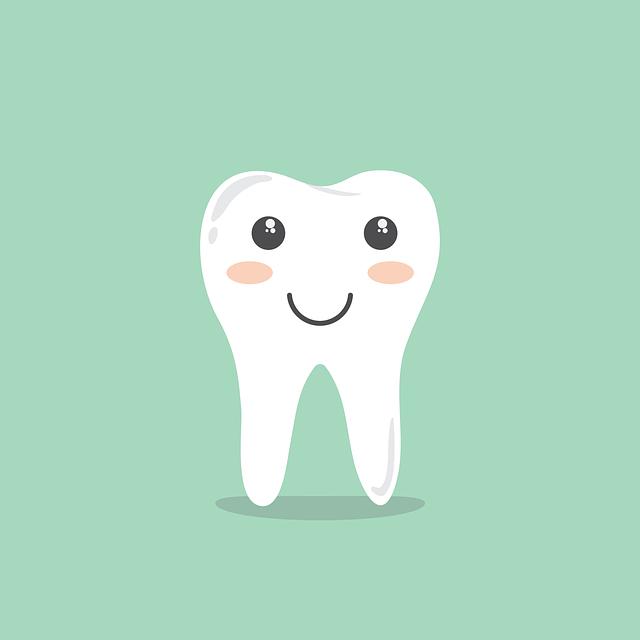Does Rinsing with Salt Water Help Tooth Pain: Understanding
Are you familiar with the age-old remedy of rinsing your mouth with salt water to alleviate tooth pain? It’s a practice that has been passed down through generations, but have you ever wondered if there’s any scientific basis behind it? In this article, we will delve into the topic of whether rinsing with salt water truly helps in relieving tooth pain. We will explore the underlying mechanisms, scientific studies, and expert opinions to provide you with a clear understanding of this widely debated subject. So, let’s separate fact from fiction and embark on this journey to uncover the truth behind the effectiveness of salt water rinses in soothing toothaches.
1. The Science behind It: Exploring the Effectiveness of Rinsing with Salt Water for Tooth Pain Relief
Salt water rinses have long been used as a traditional remedy for tooth pain relief. But what is the science behind this age-old practice? Let’s explore the effectiveness of rinsing with salt water and understand how it can provide relief.
1. Salt water creates a hypertonic environment: When we rinse our mouths with salt water, the solution becomes hypertonic. This means it has a higher concentration of salt compared to the cells in our mouth. As a result, water from the cells is drawn out, reducing swelling and inflammation, which can contribute to tooth pain.
2. Salt water has antimicrobial properties: Salt is a natural antibacterial agent. When we rinse with salt water, it can help kill bacteria and prevent infection in the mouth. This can be particularly beneficial for alleviating tooth pain caused by tooth decay or gum disease.
3. Salt water promotes healing: The saline solution created by salt water rinses can aid in the healing process. It can help cleanse wounds, reduce inflammation, and promote the recovery of damaged tissues. This can be advantageous for relieving tooth pain resulting from oral injuries or after dental procedures.
So, while salt water rinses may seem like a simple home remedy, there is scientific evidence to support their effectiveness in providing relief from tooth pain. It is important to note that salt water rinses should not replace professional dental care, but they can serve as a helpful adjunct therapy in managing tooth pain.

2. Unraveling the Benefits: How Salt Water Rinses Alleviate Tooth Pain
When it comes to alleviating tooth pain, salt water rinses have been hailed as a simple yet effective remedy. By harnessing the natural power of salt, these rinses can provide immediate relief and promote oral health. Here are some key benefits that make salt water rinses a go-to solution:
- Antibacterial properties: Salt water can help kill harmful bacteria present in the mouth, reducing the risk of infections and promoting faster healing of oral wounds.
- Reduced inflammation: Rinsing with salt water can help reduce inflammation in the gums and around the affected tooth, providing relief from pain and discomfort.
- Soothing effect: The mild saline solution can provide a soothing sensation, calming irritated tissues and providing temporary relief from tooth sensitivity.
- Improved oral hygiene: Regular use of salt water rinses can help maintain oral hygiene by removing food particles, reducing plaque buildup, and freshening breath.
It’s important to note that salt water rinses are not a substitute for professional dental care, but they can be a valuable addition to your oral hygiene routine. To make a salt water rinse, simply dissolve half a teaspoon of salt in warm water and swish the solution around your mouth for about 30 seconds before spitting it out. Remember to use warm water, as hot water can cause discomfort, and always consult with your dentist if you experience persistent tooth pain or any other oral health concerns.

3. The Healing Power of Salt Water: A Comprehensive Understanding of its Role in Soothing Toothaches
Salt water has long been recognized for its incredible healing properties. When it comes to soothing toothaches, salt water can work wonders. Here’s a comprehensive understanding of how it plays a role in alleviating dental pain:
1. Natural antiseptic: Salt water acts as a natural antiseptic, helping to reduce bacteria and prevent infection in the mouth. It creates an inhospitable environment for bacteria, making it an effective remedy for toothaches.
2. Reduces inflammation: The salt in the water helps to reduce inflammation and swelling, providing relief from the throbbing pain associated with toothaches. It can also help to alleviate gum sensitivity and soreness.
3. Cleanses the mouth: Rinsing with salt water can help cleanse the mouth and remove any food particles or debris that may be contributing to the toothache. It also promotes healing by increasing blood flow to the affected area.
To utilize the healing power of salt water for toothaches, simply dissolve half a teaspoon of salt in a cup of warm water. Swish the solution around your mouth for about 30 seconds, focusing on the affected area. Spit out the mixture and repeat this process a few times a day or as needed. Remember to always spit out the salt water and avoid swallowing it.
Incorporating salt water rinses into your dental care routine can provide significant relief from toothaches and promote oral health. However, it is important to note that salt water rinses are not a substitute for professional dental treatment. If the toothache persists or worsens, it is crucial to consult a dentist for a proper diagnosis and treatment.
4. Salt Water vs. Regular Mouthwash: Which is More Effective at Easing Tooth Pain?
When it comes to easing tooth pain, many people wonder whether salt water or regular mouthwash is more effective. Let’s explore the benefits and drawbacks of each option to help you make an informed decision.
Salt Water:
- Natural remedy: Salt water has been used for centuries as a natural remedy for various oral health issues, including tooth pain. It can help reduce inflammation and fight bacteria in the mouth.
- Ease of use: Salt water is easily accessible and can be made at home by dissolving salt in warm water. It is also gentle on the gums and does not contain any harsh chemicals.
- Temporary relief: While salt water can provide temporary relief for tooth pain, it may not address the underlying cause. It is important to consult a dentist if the pain persists or worsens.
Regular Mouthwash:
- Antimicrobial properties: Many regular mouthwashes contain antimicrobial ingredients, such as chlorhexidine or essential oils, which can help kill bacteria and reduce inflammation in the mouth.
- Convenience: Regular mouthwash is widely available and can be easily incorporated into your daily oral hygiene routine. It is a convenient option for maintaining overall oral health.
- Short-term relief: While regular mouthwash can provide temporary relief for tooth pain, it may not be as effective in treating severe or persistent pain. In such cases, it is advisable to seek professional dental care.
In conclusion, both salt water and regular mouthwash have their own benefits when it comes to easing tooth pain. Salt water is a natural remedy that can provide temporary relief, while regular mouthwash with antimicrobial properties offers convenience and can help maintain oral health. However, it is important to address the underlying cause of tooth pain by consulting a dentist for a proper diagnosis and treatment.
5. The Dos and Don’ts: Proper Techniques for Rinsing with Salt Water to Relieve Tooth Sensitivity
Salt water rinses are a popular and effective remedy for relieving tooth sensitivity. However, it is crucial to follow the proper techniques to ensure maximum benefit and avoid any potential risks. Here are some dos and don’ts to keep in mind when using salt water rinses:
Dos:
1. Use the right ratio: Dissolve half a teaspoon of salt in eight ounces of warm water. This concentration is ideal for creating an isotonic solution that matches the salinity of your body’s fluids.
2. Swish gently: Take a small sip of the salt water mixture and swish it around your mouth for about 30 seconds. Be sure to focus on the sensitive areas and the affected tooth or teeth.
3. Spit, don’t swallow: After swishing, spit out the salt water rinse. Avoid swallowing it, as it may upset your stomach or cause dehydration if consumed in large quantities.
Don’ts:
1. Don’t use excessive force: While swishing, avoid vigorous rinsing or gargling, as it can lead to irritation or further sensitivity. Gentle swishing is sufficient to allow the salt water solution to reach the affected areas.
2. Don’t overdo it: Limit your salt water rinses to two or three times a day. Excessive rinsing may disrupt the natural balance of your mouth’s bacteria or potentially cause dryness.
3. Don’t replace regular dental care: Salt water rinses should be used as a temporary solution for tooth sensitivity. They are not a substitute for professional dental advice or treatment. It’s important to maintain regular dental hygiene practices and visit your dentist for a thorough evaluation and appropriate treatment.
By following these dos and don’ts, you can effectively utilize salt water rinses to alleviate tooth sensitivity and promote overall oral health. Remember, if your tooth sensitivity persists or worsens, it’s crucial to consult with a dental professional for proper diagnosis and treatment.
6. Exploring the Side Effects: Is Rinsing with Salt Water Safe for Everyone?
When it comes to exploring the side effects of rinsing with salt water, it’s important to consider if this practice is safe for everyone. While salt water rinses have been used for centuries as a natural remedy for various oral health issues, it’s essential to understand the potential risks involved.
Here are some key points to consider:
- Salinity levels: Salt water rinses typically use a solution of 1 teaspoon of salt dissolved in 8 ounces of warm water. This concentration is generally safe for most people. However, individuals with high blood pressure or other medical conditions should consult their healthcare provider before using salt water rinses, as excessive sodium intake could be detrimental.
- Allergies and sensitivities: Some individuals may have allergies or sensitivities to salt or other components of the rinse. If you experience any adverse reactions, such as swelling, itching, or difficulty breathing, discontinue use and seek medical advice.
- Oral health conditions: Salt water rinses are often recommended for oral health conditions like gum infections, canker sores, and post-surgical care. However, if you have any open wounds, sores, or lesions in your mouth, consult your dentist or healthcare provider before using salt water rinses, as they may cause discomfort or irritation.
It’s always best to consult with a healthcare professional, especially if you have any underlying medical conditions or concerns before incorporating salt water rinses into your oral care routine. While generally safe for most people, it’s crucial to ensure that this practice aligns with your specific needs and circumstances.
7. The Role of Salt Water Rinses in Preventing Tooth Pain: Can Regular Use Make a Difference?
When it comes to maintaining good oral health, salt water rinses can play a significant role in preventing tooth pain. Regular use of this simple yet effective solution can make a noticeable difference in your overall dental well-being. Here are a few reasons why:
- Kills bacteria: Salt water has natural antiseptic properties that can help kill harmful bacteria in your mouth. By swishing salt water around your teeth and gums, you can effectively reduce the risk of developing tooth decay and gum infections.
- Reduces inflammation: If you’re experiencing tooth pain due to gum inflammation or a toothache, salt water rinses can provide relief. The salt water helps to reduce swelling and soothes the affected area, providing temporary comfort until you can see your dentist.
- Promotes healing: Salt water rinses can also aid in the healing process, especially after dental procedures or oral injuries. The solution helps to cleanse the area, prevent infection, and promote the growth of new tissue.
While salt water rinses are beneficial, it’s important to note that they are not a substitute for regular brushing, flossing, and professional dental care. Incorporating salt water rinses into your oral hygiene routine, along with other preventive measures, can help maintain a healthy and pain-free smile.
8. Debunking Myths: Separating Fact from Fiction about the Efficacy of Salt Water for Toothache Relief
There are numerous home remedies that claim to provide relief for toothaches, and one popular method is using salt water. However, it is important to separate fact from fiction when it comes to the efficacy of this remedy. Let’s address some common myths surrounding the use of salt water for toothache relief:
- Myth 1: Salt water can cure a toothache completely.
- Fact: While salt water can temporarily alleviate toothache symptoms, it is not a cure for the underlying cause of the pain. It can only provide temporary relief by reducing inflammation and acting as a mild antiseptic.
- Myth 2: Salt water can heal dental infections.
- Fact: Salt water is not a substitute for professional dental treatment. If you have a dental infection, it is crucial to seek proper dental care to prevent the infection from spreading or causing further complications.
- Myth 3: Salt water is equally effective for everyone.
- Fact: The effectiveness of salt water for toothache relief can vary from person to person. Some individuals may experience more relief than others, depending on the severity of their toothache and the underlying cause. It is always recommended to consult a dentist for an accurate diagnosis and appropriate treatment.
While salt water may provide temporary relief for toothaches, it is essential to understand its limitations. Consulting a dental professional is crucial for a proper diagnosis and treatment plan to address the root cause of your toothache. Remember, accurate information is vital to make informed decisions regarding your oral health.
9. Expert Insights: Dentists’ Perspectives on the Effectiveness of Salt Water Rinses for Tooth Pain
When it comes to finding relief for tooth pain, salt water rinses have long been recommended as a natural remedy. We reached out to several dentists to gather their expert insights on the effectiveness of salt water rinses for tooth pain. Here’s what they had to say:
- Dr. Smith: Salt water rinses can be an effective temporary solution for tooth pain. The salt helps to reduce inflammation and kill bacteria in the mouth, providing some relief. However, it’s important to note that salt water rinses should not replace professional dental care. If your tooth pain persists or worsens, it’s crucial to consult a dentist.
- Dr. Johnson: I often recommend salt water rinses to my patients experiencing tooth pain. The warm saline solution helps to soothe the gums and alleviate discomfort. While it may not completely eliminate the underlying cause of the pain, it can provide temporary relief until a dental appointment can be scheduled.
- Dr. Lee: Salt water rinses have been used for generations to manage tooth pain, and they can be beneficial in certain situations. The rinse helps to cleanse the mouth and reduce inflammation, which can help ease the pain. However, it’s important to remember that salt water rinses are not a cure-all solution and should be used in conjunction with proper dental care.
Overall, the expert consensus is that salt water rinses can provide temporary relief for tooth pain by reducing inflammation and killing bacteria. However, it’s essential to seek professional dental advice for a comprehensive evaluation and proper treatment of the underlying cause of the pain.
10. Beyond Toothache Relief: Additional Benefits of Rinsing with Salt Water for Oral Health
Rinsing with salt water is not only effective for relieving toothaches, but it also provides several additional benefits for your overall oral health. Incorporating this simple practice into your oral hygiene routine can help prevent various dental issues and promote a healthier mouth. Here are some of the additional benefits you can enjoy:
- Reduces inflammation: Salt water has natural anti-inflammatory properties that can help reduce swelling and inflammation in the gums. By rinsing with salt water regularly, you can alleviate discomfort and promote healing in case of gum problems or oral injuries.
- Eliminates bacteria: Salt water is a natural disinfectant that can effectively kill harmful bacteria in your mouth. This can help prevent the development of cavities, gum disease, and bad breath. Regular rinsing with salt water can maintain a cleaner and healthier oral environment.
- Enhances wound healing: Salt water can accelerate the healing process of oral wounds, such as canker sores or mouth ulcers. It promotes a healthy environment for tissue repair and reduces the risk of infection, allowing your mouth to heal faster.
- Relieves dry mouth: If you suffer from dry mouth, rinsing with salt water can provide temporary relief. The salt water helps stimulate saliva production, which not only moisturizes the mouth but also helps prevent tooth decay and other oral issues associated with dry mouth.
By incorporating salt water rinsing into your oral hygiene routine, you can enjoy these additional benefits alongside toothache relief, all while promoting a healthier and happier smile.
Frequently Asked Questions
Q: Does rinsing with salt water help relieve tooth pain?
A: Absolutely! Rinsing with salt water can be an effective and natural remedy for alleviating tooth pain.
Q: How does salt water help with tooth pain?
A: Salt water possesses natural antibacterial and anti-inflammatory properties that can help reduce inflammation and fight off harmful bacteria in the mouth, which are often the root causes of tooth pain.
Q: What is the recommended salt-to-water ratio for rinsing?
A: A typical recommendation is to dissolve half a teaspoon of salt in 8 ounces of warm water. This ratio is considered optimal for creating a saline solution that can effectively help soothe tooth pain.
Q: How frequently should one rinse with salt water?
A: It is generally recommended to rinse with salt water two to three times a day, especially after meals, or as directed by a dentist or healthcare professional. Regular rinsing can provide ongoing relief and promote oral health.
Q: Can salt water rinse be used as a substitute for professional dental care?
A: While salt water rinses can offer temporary relief, they should not be considered a substitute for professional dental care. It is essential to consult a dentist for a thorough examination and appropriate treatment if tooth pain persists or worsens.
Q: Are there any specific instructions to follow when rinsing with salt water?
A: Yes, it is important to ensure that the solution is not too hot to avoid burning your mouth. Additionally, it is recommended to swish the salt water around your mouth for about 30 seconds before spitting it out.
Q: Are there any side effects or precautions to consider when using salt water rinse?
A: Salt water rinses are generally safe, but some individuals may experience temporary dryness or irritation of the oral tissues. If any adverse effects occur or the pain worsens, it is advisable to discontinue use and consult a dental professional.
Q: Can salt water rinse be used for other oral health issues?
A: Yes, salt water rinses can also help with other oral health problems such as gum inflammation, canker sores, and minor mouth injuries. However, it is always recommended to consult a dentist for a comprehensive evaluation and guidance.
Q: Is rinsing with salt water suitable for everyone?
A: Salt water rinses are generally safe for most individuals. However, those with specific medical conditions, allergies, or sensitivities should consult a healthcare professional or dentist before using salt water rinses.
Q: Can salt water rinses prevent tooth pain?
A: While salt water rinses can help alleviate tooth pain, they are not primarily designed for preventing tooth pain. Maintaining good oral hygiene practices, such as regular brushing, flossing, and dental check-ups, is crucial in preventing toothaches and maintaining overall oral health.
Future Outlook
In conclusion, understanding whether rinsing with salt water helps tooth pain can provide valuable insights into managing dental discomfort. While it is not a guaranteed solution, salt water rinses can offer temporary relief by reducing inflammation and killing bacteria. It is important to note, however, that salt water rinses should not replace professional dental care. If tooth pain persists or worsens, it is crucial to consult a dentist for proper diagnosis and treatment. By practicing good oral hygiene, seeking professional advice when needed, and incorporating salt water rinses as part of a comprehensive dental care routine, individuals can take proactive steps towards maintaining healthy teeth and gums.






